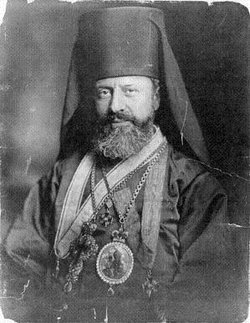Scripture and Holy Tradition – May 17th, 2019
I was attacked on Facebook today by a very arrogant, seemingly prideful, and rather belligerent Protestant today. He argued that simply because I did not hold the scripture as the sole source of truth within the context of the Christian faith, that I was somehow in denial of Christ. I eventually had to block him, as there was no reasoning or room for civil discourse. Plus, he kept posturing as some Grand Master of the Christian faith, and claimed I stepped out of my pay grade when I shot down whatever garbage translation he was using by showing him the Greek. I will pray for him.
Placing scripture in its proper place and historical context and understanding is not a denial of Christ. Christ is not the book. Scripture is truth, but YOUR understanding of scripture is not. He argued the understanding of scripture in the early Church, as well as the theology of Christendom, was voted on by mere men, I guess making a de facto assertion that his understanding was somehow superior. To me, this only reinforces how our understanding of Church affects our understanding of Truth.
We should always start with the question, “What did the Church teach,” for truth does not change, and I imagine the Christians of the first four centuries, from whom we get our best commentaries, know better than we do today. Also, we can see how the Church lived, what the Church said regarding them, and understand the same. The Church is the Pillar and foundation of truth, for it is the body of Christ.
I really like the words of Saint Raphael regarding Scripture within the context of Tradition.
“Just as the written word is nothing other than the more brief and at the same time more constant representation of the spoken word, so also holy Scripture can be viewed as the brief and at the same time constant expression of sacred Tradition. Hence sacred Tradition and holy Scripture are thus very closely tied to one another, so that each by necessity requires the other, and the absence of one in these important points is detrimental to the other. In this way, when holy Scripture is disregarded, sacred Tradition runs the danger of distortion because then the human can be mixed up easily with the divine, the profane with the holy, and truth with falsehood. On the other hand, when sacred Tradition is removed, holy Scripture is subject to many misinterpretations because when holy Scripture is left to each one’s free understanding and interpretation, a certain strange diversity within the one and same Christian teaching can hence result.”
~Saint Raphael of Brooklyn.

